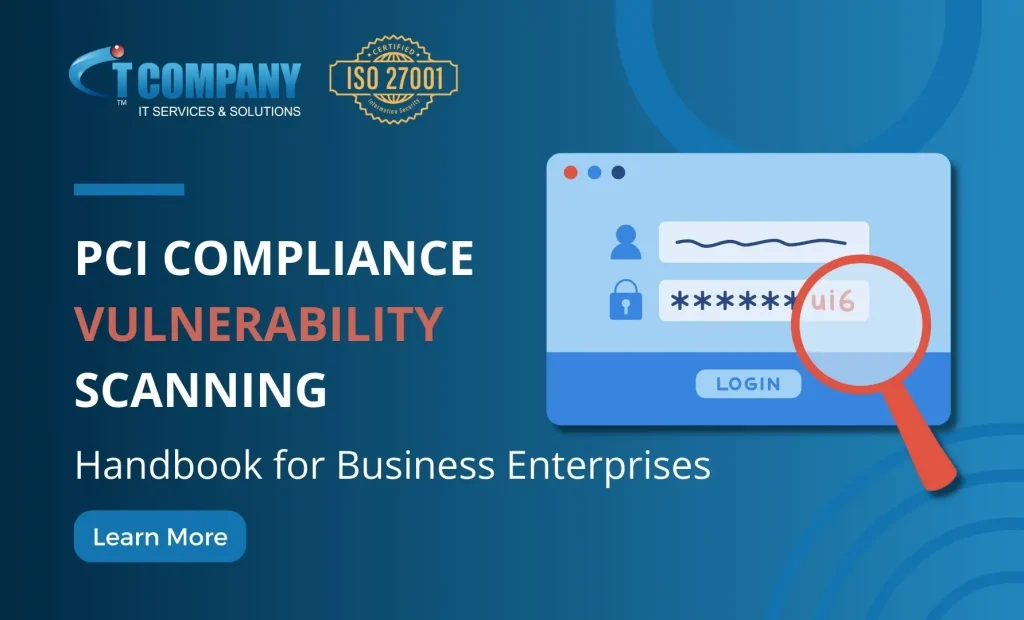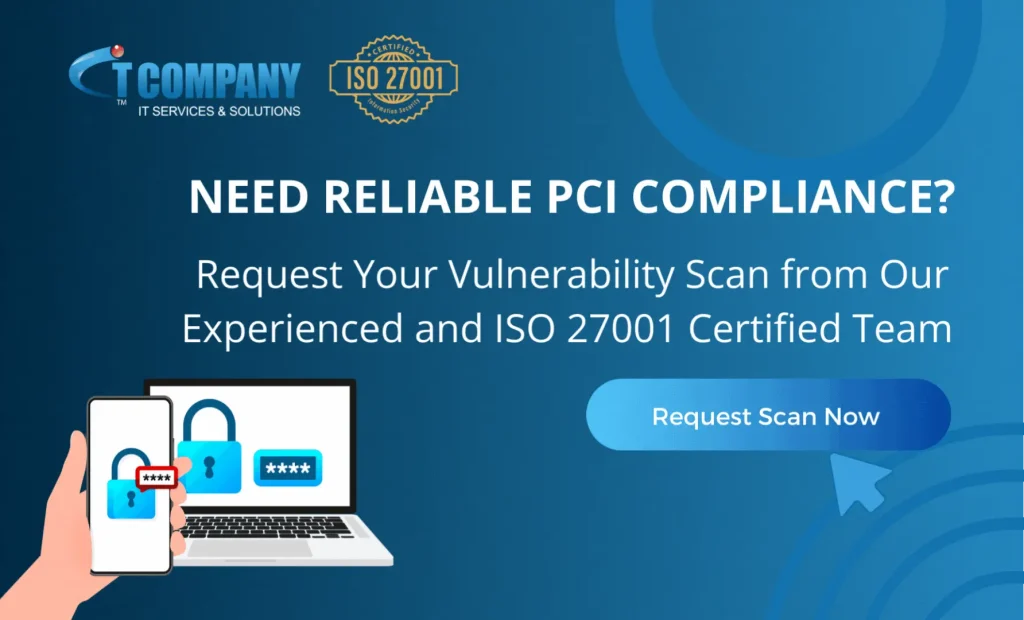
Table of Contents
ToggleWith cyber threats escalating, robust data protection is more critical than ever. Cybersecurity Ventures forecasts that global cybercrime damages will reach $10.5 trillion (about $32,000 per person in the US) (about $32,000 per person in the US) annually by 2025. A 2023 IBM study highlights the staggering average cost of a data breach at $4.45 million.
To achieve optimal protection, partnering with an ISO 27001 certified IT company. We focus on maintaining top security standards. Our PCI Compliance Vulnerability Scan ensures your data protection is both comprehensive and compliant with industry regulations.
What is PCI Compliance?
PCI DSS is like a safety guide for businesses to make sure they handle credit card information securely. It includes specific rules businesses must follow to prevent credit card fraud and protect sensitive data.
| PCI DSS Requirement | What It Means |
| 1. Build and Maintain a Secure Network | Install and maintain firewalls and security systems. |
| 2. Protect Cardholder Data | Encrypt and protect sensitive credit card data. |
| 3. Maintain a Vulnerability Management Program | Use and update antivirus software. |
| 4. Implement Strong Access | Limit and control access to cardholder data. |
| 5. Monitor and Test Networks | Regularly check and test network security. |
| 6. Maintain an Information Security Policy | Have clear security policies in place. |
Why is PCI Compliance Important?
PCI compliance is essential for any business that accepts, processes, stores, or transmits credit card information. Failure to comply with PCI DSS can result in hefty fines, loss of customer trust, and damage to your business’s reputation.
What is PCI Compliance Vulnerability Scanning?
A PCI compliance vulnerability scan is a comprehensive assessment of your network and systems to identify potential weaknesses that could be exploited by hackers. This scan identifies and addresses vulnerabilities early. By finding weaknesses before cybercriminals do, you reduce the risk of exploitation and enhance your security measures.
How Does PCI Compliance Vulnerability Scanning Work?
A PCI compliance vulnerability scan typically involves the following steps:
Assessment:
A security professional will assess your network and systems to identify potential vulnerabilities.
Reporting:
The security professional will provide you with a detailed report of the vulnerabilities found.
Remediation:
You will work with the security professional to develop a plan to address the vulnerabilities.
Retesting:
After the vulnerabilities have been addressed, a retest will be conducted to ensure that they have been successfully mitigated.
Benefits of PCI Compliance Vulnerability Scanning
There are many benefits to conducting regular PCI compliance vulnerability scans, including:
- Reduced risk of data breaches: By identifying and addressing vulnerabilities, you can significantly reduce the risk of a data breach.
- Improved customer trust: Customers are more likely to do business with companies that take security seriously.
- Compliance with PCI DSS: Regular vulnerability scans are a requirement of PCI DSS.
- Cost savings: Addressing vulnerabilities early can help you avoid costly data breaches.
How to Choose a PCI Compliance Vulnerability Scanning Provider
When choosing a PCI compliance vulnerability scanning provider, it is important to consider the following factors:
- Experience: The provider should have experience conducting PCI compliance vulnerability scans.
- Certifications: The provider should be certified to conduct PCI compliance vulnerability scans.
- Reputation: The provider should have a good reputation for providing quality services.
- Cost: The provider should be able to give you a competitive quote.

Conclusion
PCI compliance vulnerability scanning is an essential part of any business’s security program. By conducting regular scans, you can protect your business from data breaches, maintain customer trust, and comply with PCI DSS regulations.